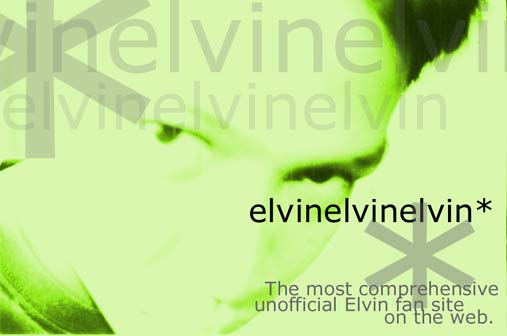
home
articles
journal
photos
site map
links
guestbook
webmaster
Will somebody teach the kids please? (Journalism 109)
CD Difference (Journalism 109)
Baptizing typhoons (Creative Writing 140)
Ang pelikula bilang aklat pangkasaysayan... (Journalism 199)
elvin's works*
An idiot's guide to CD piracy
You know your children own compact discs (CDs) be it in audio or video format. With the advancement of technology, cassettes are slowly losing their popularity as the main medium for audio records. And can you recall when was the last time you played a record album on your phonograph? And also due to the advancement of technology, the reproduction of audio recordings has never been a lot easier. In fact, even households who have the equipment like a CD burner (also known as a CD writer that is used to transfer data to a blank CD) on their personal computer can make multiple copies of one CD album. This ease in reproduction made music piracy a lucrative business for many. For a little capital (just for the equipment and the blank CDs), they can earn money by simply selling the counterfeit and illegal music albums on sidewalks or in stalls. So you also know that your children own pirated CDs? They might even declare that their collection is a full collection of counterfeits. How did they know? What if you thought of giving them an audio (or music) CD? How will you know that what you're buying is real? First, be wary of the location where the products are being sold. If the CDs are being sold on the sidewalks, more likely, they are counterfeit. But beware, some stores (like small stalls) are also selling fake CDs. It is then safer to buy music albums from record bars or stores specializing in music products. Then check the cost. Original CD prices range from 250 to 500 pesos. A 50-peso music CD isn't really a good buy when you're doing an illegal act. Inspecting the package also helps in making sure that what you're buying is real. Original music CDs usually have their CD package sealed in plastic. Fake CDs meanwhile, usually do not have any other seal making it "ready to open" for you to check the content. Original CDs definitely have finer label qualities. Compared to fake CD labels, that of the original one has better printed covers. Most of the time, labels of fake CDs are one-sided, meaning, only the front side has pictures on it. Real CD labels are usually in forms of booklets or pamphlets containing information on the songs (that includes the composers and producers, not just the title and/or the lyrics). You can also check the actual CD. The actual CD must at least bear the name of the album, the artist, and the record company producing the album. One sure way of knowing that a CD is real is when these information are not only printed on the CD but inscripted on it, just around the whole in the middle of the disc. Supposing the CDs are sealed and you couldn't check the label or see the CD, read the cover. Labels of original CDs are marked with the trademarks or logos of official recording and/or distribution companies. It is important though that you are familiar with such companies since fake CDs also make up counterfeit record company names. And one minor note, avoid compilations (minor, since there are indeed lots of original CDs that are compilations). Most of the time, CD pirates try to combine two rival artists in one CD. Yes just like original ones, fake CDs work on your CD players too. They can even be bought in lower costs. Why then bother buying original CDs? Record companies have reportedly lost millions in revenues because of music piracy. On the surface, it might seem that only the record companies are being affected but in truth, it is damaging to the entire music business in the Philippines. Record companies tend to produce albums with lesser tracks. Others result in not considering original compositions anymore. Artists are being discouraged to practice their craft, knowing that their intellectual properties are being used by other people for profit. Speaking of Intellectual property, buying fake CDs is a clear support for people violating the Intellectual Property Act, the law that deals with matters like copyright infringements. CD piracy is a crime. Pirated CDs are illegal. elvinelvinelvin
CD Difference
The most comprehensive unofficial elvin fan site on the web.